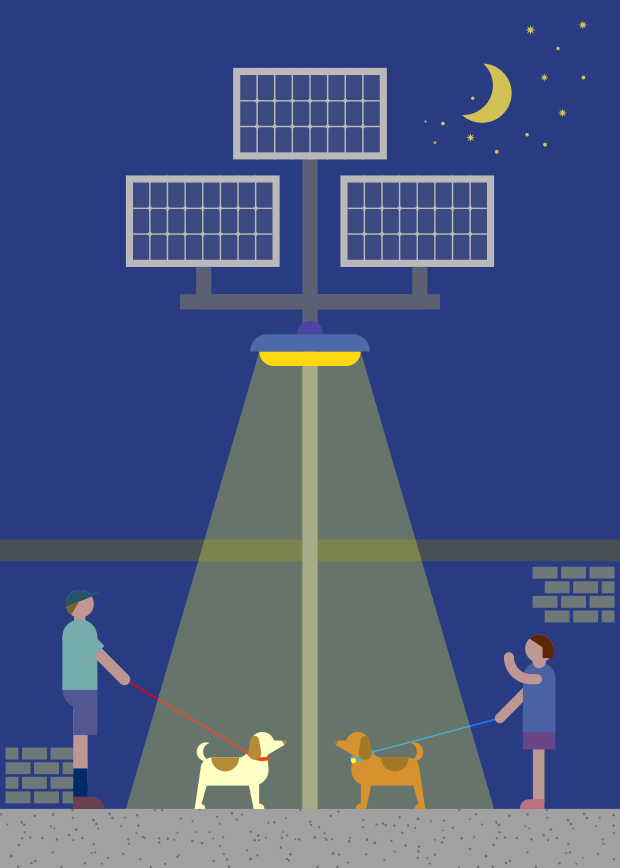Environmental conservation activities

We are seeking to create an eco-friendly society by taking global warming and other environmental issues seriously and engaging in research activities, holding discussions with experts, and offering proposals to government agencies and private companies.
LED lighting can be both eco-friendly and practical

Solar-powered LED lighting emits no CO2 at all and, because it does not contain mercury like conventional fluorescent lights, it does not qualify as industrial waste. This is thus a very environmentally-friendly form of lighting.
In a project commissioned by the Japanese Ministry of Foreign Affairs in connection with the 2008 Toyako Summit, we conducted research on wind-powered and solar-powered LED lighting and worked to popularize environment-friendly equipment.
In terms of practicality, the industry’s top-class LED lighting has brightness on par with fluorescent lighting and its long useful life of about 10 years makes it essentially maintenance-free. Electricity costs are zero, of course, and the lighting will not go out even during disasters.
Trash incineration always entails the risk of generating toxic gases
Humans cannot avoid emitting unwanted substances in their day-to-day lives but, given the rising living standards of the present age, the environmental impact of waste has grown by leaps and bounds.
In a project funded by the Japan Fund for Global Environment, we conducted an empirical study on the formation of a recycling society that looked at approaches to waste processing/disposal to minimize environmental impacts on core cities.
While there is always the possibility of trash incineration generating toxic gases, not incinerating trash is not an option, so we must reduce the risks accompanying incineration as much as possible while utilizing recycling technologies.
Council Meeting
We are considering methods to meet increasing energy demand while protecting the environment
To enhance understanding on environmental issues, we are conducting discussions with both Japanese and non-Japanese experts from various fields, offering recommendations to the government, and providing proposals to private companies.
At the “Environment & Energy Seminar: Coming to a Common Understanding in Asia,” an international symposium held jointly with Mitsubishi Research Institute, Inc., experts from such organizations as the Royal Institute of International Affairs (UK) and the Chinese Society for Environmental Sciences discussed China’s natural gas pipelines and other energy issues in Asia.